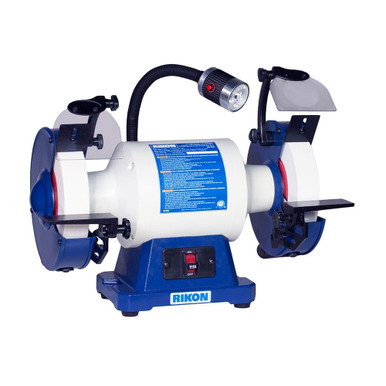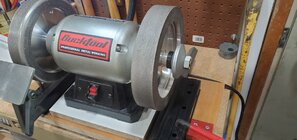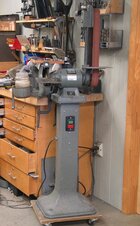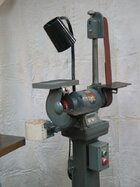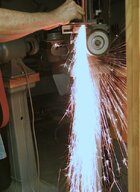If I was to opt for another grinder, I would want the Tradesman one, but with the new tariff policies, since it is from Canada, who knows. The variable speed would be nice, especially since you could put diamond wheels on it. I guess you would have to swap out the diamond for CBN if you wanted to do some serious shaping of your tools.
I did see an 8 inch Baldor at an estate sale for $150 and wanted it, but it was already sold. The guy that bought it ended up selling it, but not to me....
Having a "dust port" is not the same thing as having a dust extractor/collection set up, it only provides a place to hook up a hose.
The heavy D Way Wheels only have 5/8 arbors on them. I would be interested in putting them on my Baldor, but would have to take them to a machine shop to have them drilled out.
robo hippy
I did see an 8 inch Baldor at an estate sale for $150 and wanted it, but it was already sold. The guy that bought it ended up selling it, but not to me....
Having a "dust port" is not the same thing as having a dust extractor/collection set up, it only provides a place to hook up a hose.
The heavy D Way Wheels only have 5/8 arbors on them. I would be interested in putting them on my Baldor, but would have to take them to a machine shop to have them drilled out.
robo hippy

